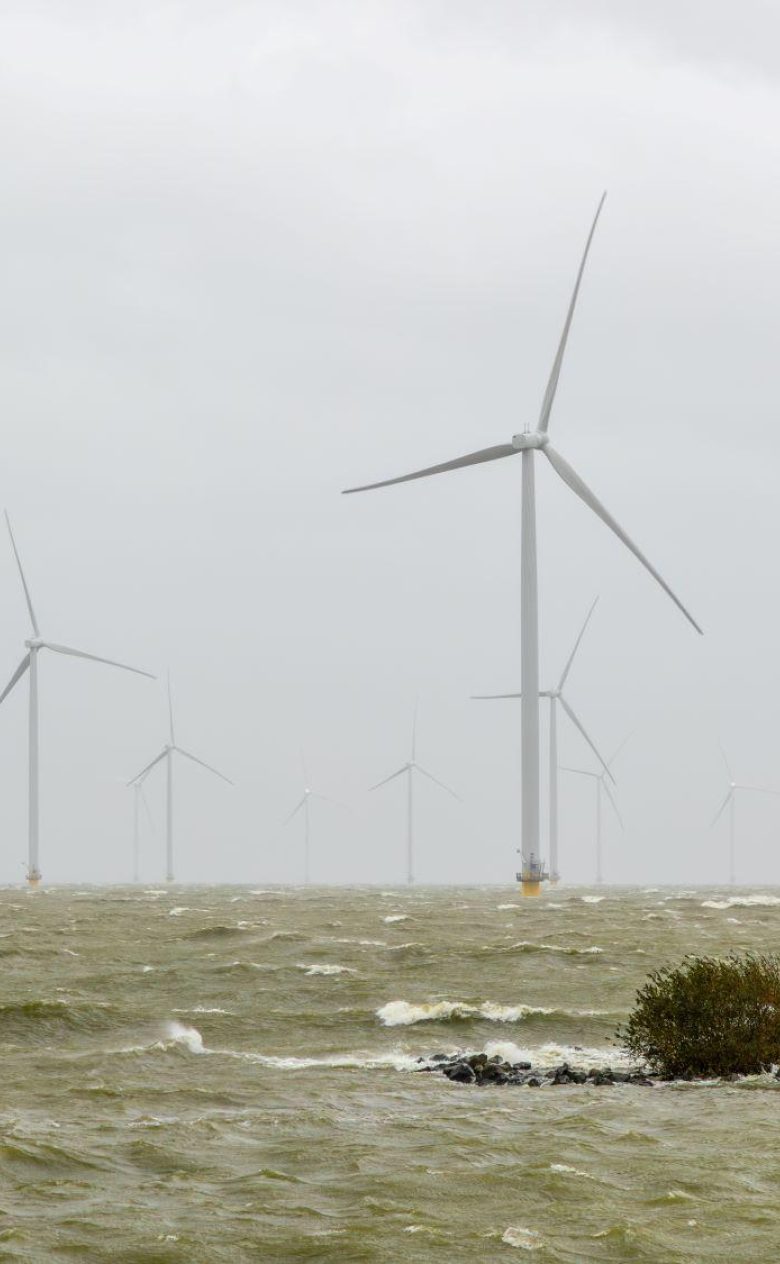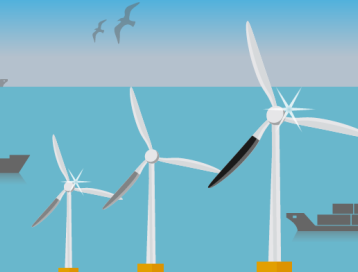Smarter use of space at nature-inclusive wind farms North Sea
In our energy transition, the North Sea plays a major role. The space required for offshore wind farms is huge, affecting the ecosystem and all other activities that take place at sea. How can offshore wind farms be designed and used in such a way that they also function as food and energy hubs and contribute to the restoration of biodiversity? This was investigated in the Joint Industry Project TKI Road2SID, coordinated by Deltares.

By 2050, we want to generate 70 GW of wind energy through wind farms in the Dutch part of the North Sea. In this diverse but impoverished maritime ecosystem, many human activities already take place. In terms of defence and recreation, as well as fishing, shipping, and sand extraction for coastal protection. In the future, there should be room for other forms of food production, such as mussels or seaweed farming. Plus, infrastructure that transports energy from new wind farms, floating solar panels, wave energy and hydrogen production.
Putting the puzzle together
To finish this puzzle in the North Sea, Deltares is working together with a number of research and industrial partners in the Joint Industry Project TKI Road2SID. This project was initiated by GROW, which aims to accelerate innovation in offshore wind, and operates under the umbrella of the North Sea Agreement and the North Sea Programme 2022 - 2027, as part of the National Environmental Vision (NOVI). It is noted that the nine countries around the North Sea recently agreed under the Greater North Sea Basin Initiative (GNSBI) to protect the sea more efficiently and optimise spatial planning at international level.
Nature-inclusively designed wind farm as energy and food hubs
Although knowledge about multifunctional wind farms at sea is in its infancy, Road2SID shows through an overview of existing initiatives and best practices that there are many possibilities. For example, the space between wind turbines can be used for floating solar, wave or tidal power generation. In addition, offshore wind farms can be designed nature-inclusively, so offshore wind infrastructure and space can support the recovery of important species. Moreover, offshore wind farms can be used as hubs for sustainable food production, e.g., for breeding, raising and harvesting fish, shellfish and seaweed.
Better cooperation
Road2SID's report brings together different perspectives, opportunities, and challenges from various stakeholders. Better cooperation between users in the North Sea is already profitable if they share resources, data, knowledge, and experiences. There is an important role here for governments, which can remove legal barriers and encourage wind developers to create multifunctional designs through tender requirements.
By adopting a similar approach, harnessing data, and embracing innovative solutions, future offshore wind farms can contribute more than to the energy transition alone. Their design can and needs to account for the biodiversity crisis and transitioning food production at sea, within the context of climate change.
Antonios Emmanouil, expert nature-inclusive design in offshore wind at Deltares


